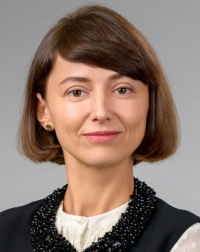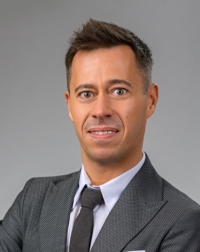Our experience
Baseline Study on Gender Norms and Stereotypes

Gender norms and stereotypes represent significant barriers to realising gender equality and the benefits it brings. By influencing and defining the way that a society perceives women and men, they can impose limits on an individual’s ability to reach their full potential. For example, patriarchal stereotypes about men as breadwinners and women as wives and homemakers can influence a society’s view about education and participation in the labour force, prioritising the education and career progression of men over women and limiting women’s opportunities. These stereotypes can also actively undermine the safety and wellbeing of individuals – gender stereotypes driven by patriarchal social norms are an acknowledged root cause of gender-based violence.
A PwC Ukraine team has assisted UN Women and UN Population Fund (UNFPA) by providing in-depth insights into existing gender stereotypes in six Eastern European countries (Armenia, Azerbaijan, Belarus, Georgia, Moldova, and Ukraine) and identifying ways to tackle them in order to build more gender equal societies.
Client:
UN Women and UNFPA
Our role:
PwC conducted a Baseline Study on the prevalence of gender stereotypes among both women and men in the Eastern Partnership (EaP) countries and proposed a set of recommendations on how to tackle such stereotypes, increase men’s involvement in domestic work and childcare, and prevent gender-based violence (GBV). This assignment aimed to inform programme activities of a three-year Joint Programme of UN Women and UNFPA implemented in EaP at the national and regional levels, with a view to eliminate gender inequality and promote empowerment of women and girls in the region.
Countries:
EaP countries - Armenia, Azerbaijan, Georgia, Moldova, Belarus and Ukraine.
The Baseline Study was produced in the framework of the “EU 4 Gender Equality: Together against gender stereotypes and gender-based violence” programme, funded by the European Union, implemented jointly by UN Women and UNFPA.
The Baseline Study was produced with the financial support of the European Union. Its contents are the sole responsibility of UN Women and UNFPA and do not necessarily reflect the views of the European Union.
Setting the scene
In spring 2020, UN Women and UNFPA regional offices for Europe and Central Asia launched a three-year Joint Programme to be implemented in Armenia, Azerbaijan, Belarus, Georgia, Moldova and Ukraine (Eastern Partnership countries) at the national and regional levels. The programme is aimed at shifting societal perceptions around gender stereotypes and patriarchal norms limiting women’s rights; improving men’s involvement in caretaking of their children and participation in father’s programmes; and spurring the adoption of best practices in perpetrator’s programmes among the ministries of social affairs and Programme for perpetrators in the respective countries.
In the six countries included in the programme (Georgia, Azerbaijan, Armenia, Moldova, Belarus and Ukraine), a number of efforts have been undertaken in recent decades to advance gender equality and promote women’s rights. While considerable progress has been made in several areas, a broad range of challenges persist. All six countries show evidence that cultural beliefs around the roles of men and women persevere. Norms, culture and stereotypes perpetuate gender inequalities that can be expressed through violence and discrimination against women.
The overall objective of the study was to collect and analyse data on gender stereotypes and harmful social norms and practices that prevent women and girls from enjoying equal rights and opportunities at all levels and in all spheres of public life. The research also looked for gender stereotypes and social norms resulting in discrimination against marginalized groups (persons with disabilities, internally displaced persons, etc.) to address issues of intersectional gender inequality.
Based on the data found, the study provides a number of recommendations for each of the six countries, which should inform future programme design.

How we helped
The study involved primary and secondary data collection, involving quantitative and qualitative data collection methods.
Desk review
The desk review included analysis of international good practices of survey methodologies and a wide range of data, with a focus both on regional trends and specific country findings. In addition, 29 interviews with experts across all six countries were conducted to strengthen and add nuance to the desk review findings.
Primary data collection
The major tool of the quantitative study is a survey conducted by means of a structured questionnaire with 1,000 respondents in each of the six participating countries. The survey questions and sample size were consistent across all six countries. Apart from the social-demographic and economic data, the survey contained five key sections which together captured most of the interactions between women, men and the society around them, depicting a full picture of the current state of gender norms and attitudes:
- Overall perceptions of male and female roles in society
- Employment and leadership
- Household and family
- Gender-based violence
- Sexual relationships and reproductive health
Data collected through the quantitative survey were supplemented with the data collected through focus group discussions (FGDs) and in-depth interviews (IDIs). The FGDs and IDIs were semi-structured; moderators and participants discussed certain aspects of the quantitative study, both to explore whether the results of the survey match the results of FGDs/ IDIs and to identify other findings of possible discrimination practices specific for vulnerable groups within 6 EaP countries. FGDs/ IDIs were held with single mothers and fathers, internally displaced people, ethnic minorities, people with disabilities, older people and mothers returning to the labour market after maternity leave.
Harmful social norms, beliefs and stereotypes are the root causes of inequalities and gender-based discrimination. They often reflect underlying power relations and limit women’s rights and opportunities for self-realization. Shifting harmful stereotypes and changing norms is not something that happens overnight – it requires a targeted collective response over the years. This study provided very important data and insights. It opened up a conversation about harmful gender norms and stereotypes allowing to push further work towards shifting them.
Impact and potential
Empowering women and girls helps economic growth and development. Gender equality and women’s empowerment is one of the 17 Sustainable Development Goals (SDG), and is integral to all dimensions of inclusive and sustainable development. It is both a stand-alone goal and an accelerator to achieving all SDGs. Women’s increased access to and progression in the labour market is a strong driver of economic growth and can have a noticeably positive effect on a country’s Gross Domestic Product (GDP). Gender equality and egalitarian gender roles are more likely to lead to safer and healthier societies, where individuals are free to make their own choices and live to achieve their full potential.
The study has identified some positive perceptions relating to gender equality among respondents in the EaP region. Respondents in each country were more likely than not to feel that there has been progress in gender equality since their own childhood. Respondents also tended not to feel that a person’s gender was a factor when it came to professional performance or succeeding in a political role. However, the survey also showed that non-egalitarian perceptions and norms remained pervasive across the EaP countries, with women still perceived to bear most of the burden for unpaid domestic and care work and being held to a higher standard than men when it came to issues like sex before marriage.
This study produced a number of recommendations aiming to build on existing initiatives in the region to increase gender equality. These differ slightly from country to country, while the key recommendations common to all countries include:
Strengthen gender mainstreaming and gender equality principles within national education systems.
Build the capacity of key actors across all media platforms to ensure messages and communication do not reproduce nor promote gender stereotypes but rather encourage diversity and equality.
Engage the private sector to identify ways in which gender equality can be promoted in the workplace, and negative stereotypes related to employment and leadership reversed.
Undertake further research, exploring the relationship between perceptions identified throughout this survey and existing norms and practices.
Work with key actors in the health sector, including governments, civil society, educational bodies, and medical professionals, to promote non-discriminatory and equal use of services among all women and girls.

Anna Onyshchenko
Director, Public Sector Leader, PwC Ukraine

Kostiantyn Sinelnychenko
Manager, Strategy & Operations, PwC Ukraine
Contact us



CEE Director of Brand and Communications, PwC Central and Eastern Europe
Tel: +48 519 506 633



